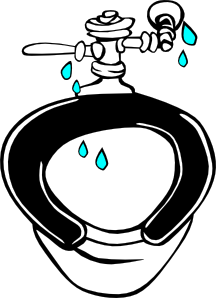
What’s up Everybody,
So often we hear about the real estate buzz word ‘leverage’.
Leverage is a very important concept when it comes to real estate investing.
Leverage is a great thing because, ‘leverage’ allows you to buy real estate.
To those that do not know, simply put, leverage is using money (other than your own) in order to assist you in purchasing a piece of real estate. ***This is not an official definition, rather, my own definition off the top of my head.
In order to see leverage at work, let’s check out an example…
Let’s say that you are purchasing a house valued at:
$100,000
If you have $100,000 cash saved and you use up all of this cash to buy this house, you are using no leverage, as you have used up all of your own money to buy the house.
Now let’s say that you purchase this same house valued at $100,000, but this time, you use your own personal savings in the amount of:
$25,000
Since you have put down $25,000 towards this property, you will need to get a mortgage in the amount of:
$75,000
This is an example of using leverage. You have used leverage here because you have used money other than your own (mortgage) in order to buy this piece of real estate.
Why do people use leverage?
One can argue that there are a number of reason’s that people use leverage. However, the main reason I believe people use leverage is because of the higher Return on Investment (ROI) that is generated when leverage is used, as opposed to when it is not used.
If we look at the examples above, the eventual ROI would potentially be greater when you put down $25,000 in order to purchase the property, as opposed to using the full amount of $100,000 in order to purchase the property. This is because you have used less capital in order to purchase the same property.
When is it time to de-leverage your portfolio?
If you own a number of properties, when is it time to de-leverage your portfolio? When I say ‘de-leverage’, I mean…when is it time to get rid of some of that leverage by potentially selling a property or two that are over leveraged?
If you do not own a portfolio of rental properties, and you are looking to purchase your first rental property, when should you decided NOT to use any leverage?
These are important questions to ponder, because if you do not pay special attention to how much you are leveraged as a real estate investor, you can become over leveraged quite easily
Who cares if you are over leveraged?
You should care, and in a major way. Being over leveraged can cause you to be making payments on a mortgage or on borrowed money that you cannot afford. Some might argue that you become over leveraged when your payments going out for a mortgage are greater than the income coming in.
But seriously, how do I know if I am over leveraged?
If you are looking for conventional wisdom here, you are not going to get it. Personally, I have learned that people know how much leverage they can tolerate by listening to their gut instinct. Further, people have different levels of tolerance for leverage. As such, some people are able to stomach a lot more ‘leverage’ than others.
This may not be the the answer that you were looking for, but it is the truth. At least, it is the truth that I have come to realize.
If you have a gut feeling that you should not take on any more debt with respect to real estate, or if you feel that you already have too much real estate debt… you will know this — just listen to your gut. No one can tell you this. This is something that you will realize for yourself.
If you push the boundaries and try to over leverage yourself, and if you don’t listen to you gut instinct, this is when you can get into trouble.
Debt can be manageable…no question. Many successful real estate investors have tonnes and tonnes of debt. However, the super successful ones are able to carefully manage this debt, a.k.a. leverage very effectively.
Is leverage good or bad? What do you think? Leave your comments in the comments section below.
To keep up to date with my blog, you can enter your e-mail address in the left hand side of the blog. Or you can click on the orange RSS button at the top right hand corner of the blog.





 Greetings Everyone,
Greetings Everyone,



